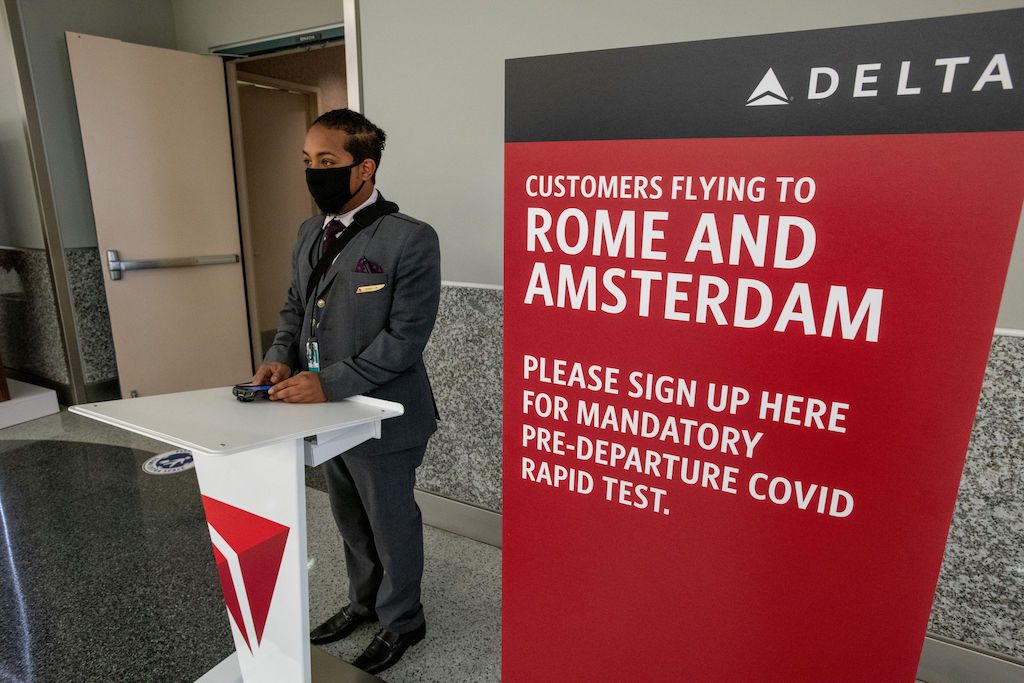Airlines Want All International Travelers Tested Before Flying to the U.S.

Skift Take
U.S. airlines support a CDC recommendation to mandate negative Covid-19 tests for all arriving international travelers. It's a bet many think will allow the industry to restart grounded flights and boost their moribund businesses.
Travelers to the U.S. may soon need a negative Covid-19 test if the country adopts a the recommendations of public health officials.
Airline trade group Airlines for America (A4A) backed a Centers for Disease Control and Prevention recommendation that the U.S. ditch blanket travel restrictions in favor of a mandatory testing regime for all arrivals, in a letter to Vice President Mike Pence on Monday. All of the large global U.S. carriers, including American Airlines, Delta Air Lines and United Airlines, are members of A4A.
If the U.S. adopts the CDC recommendation, it would be the largest country so far to implement mandatory testing on international passengers.
Testing rules woul
